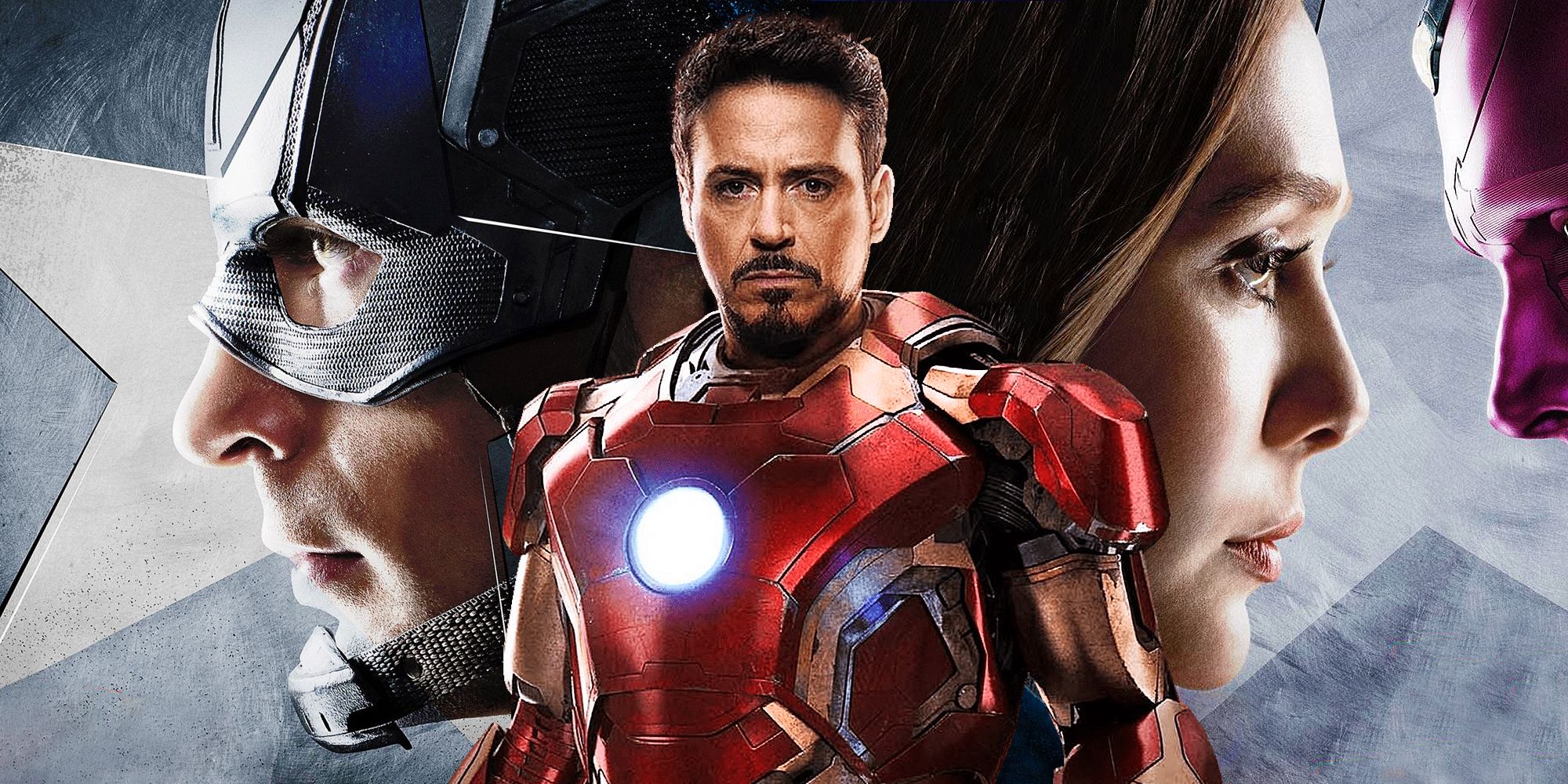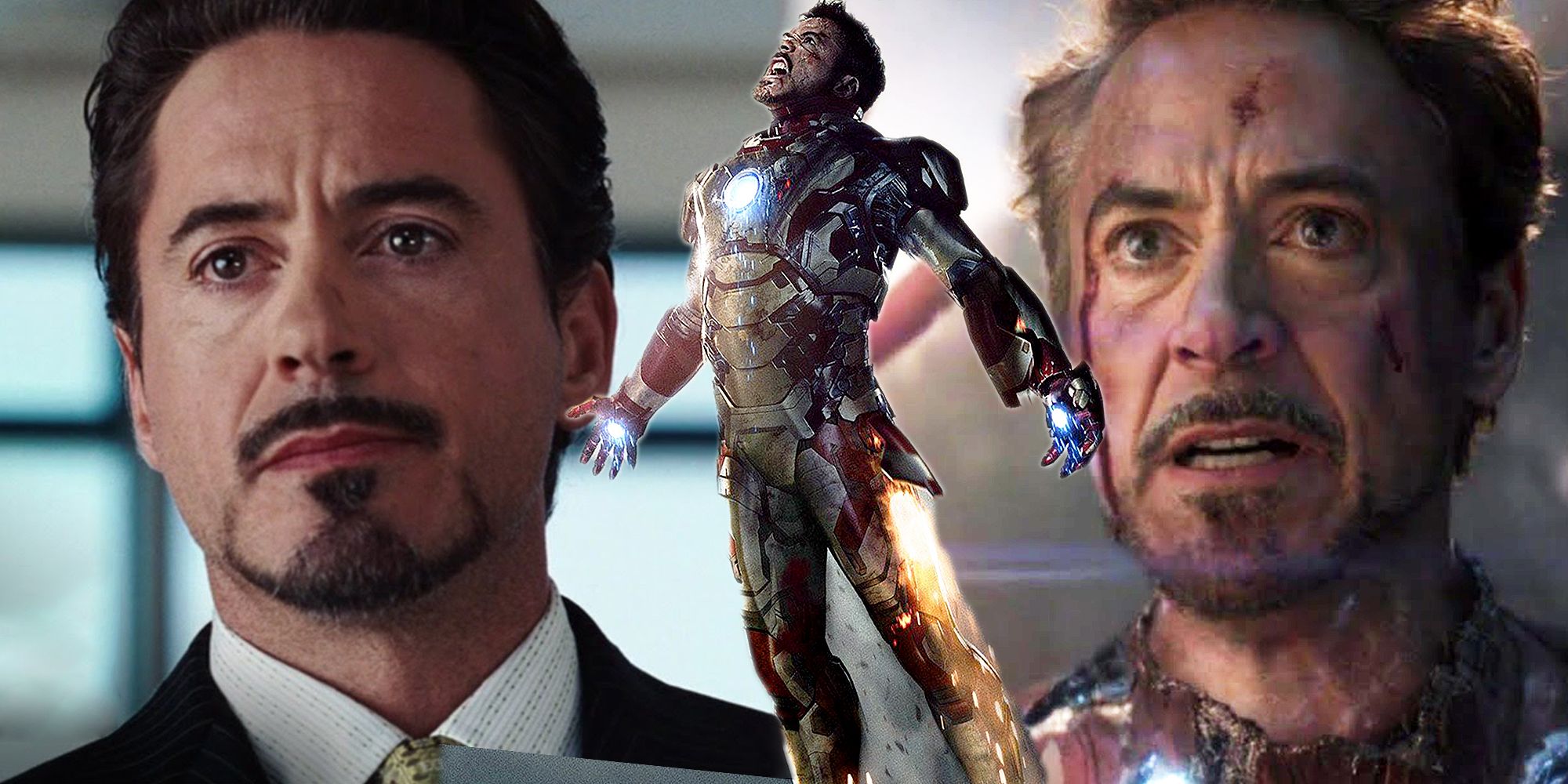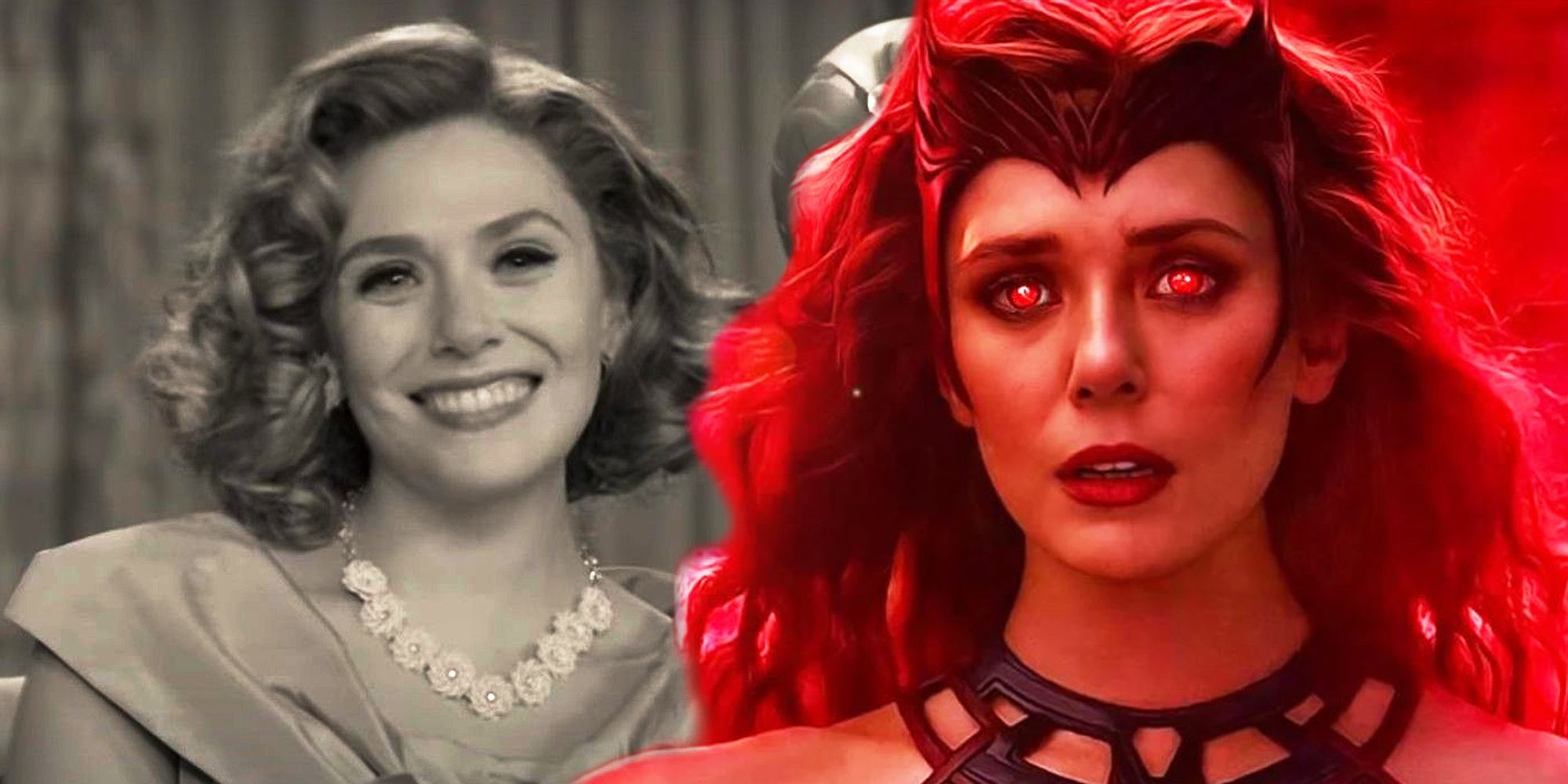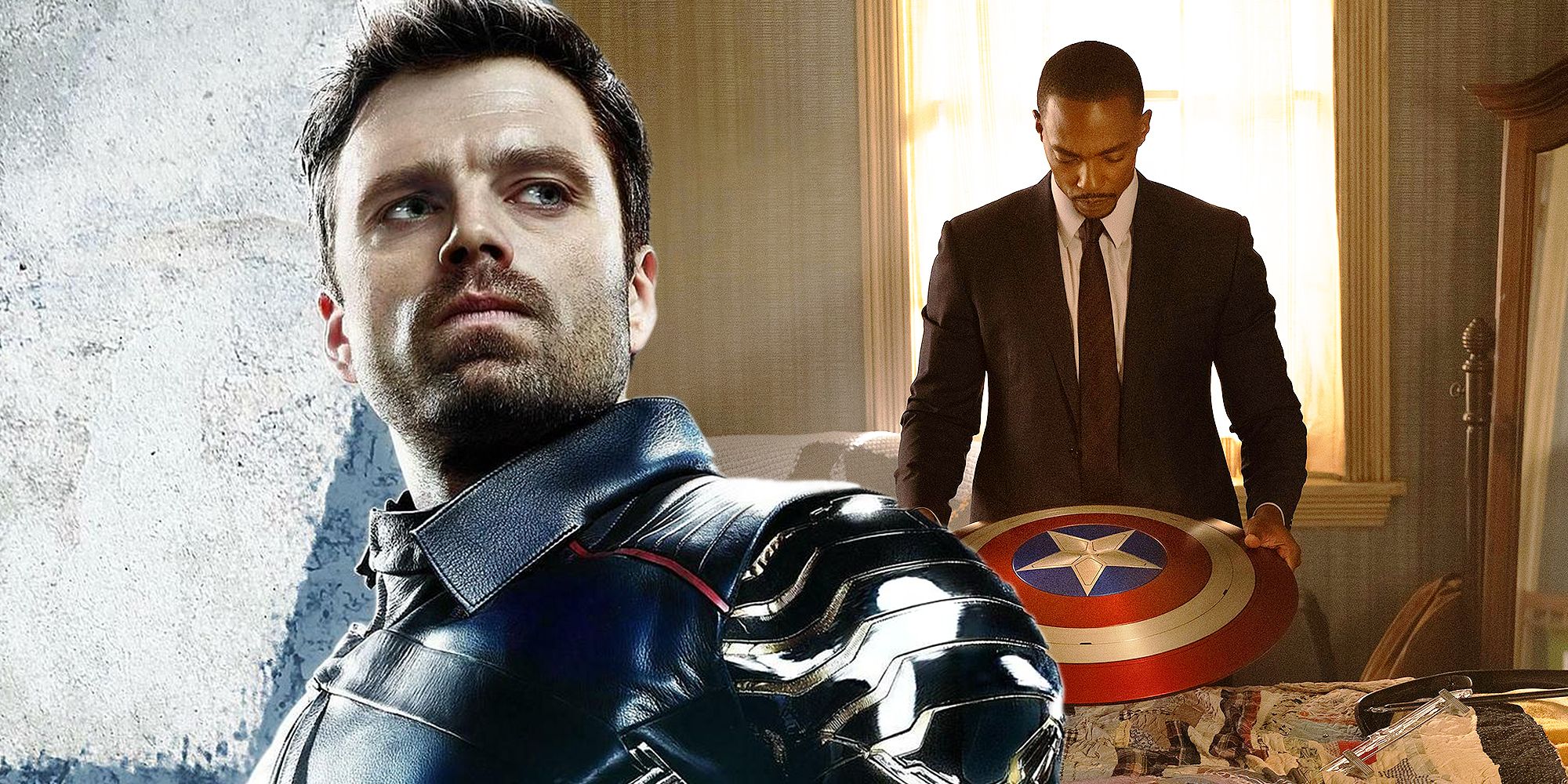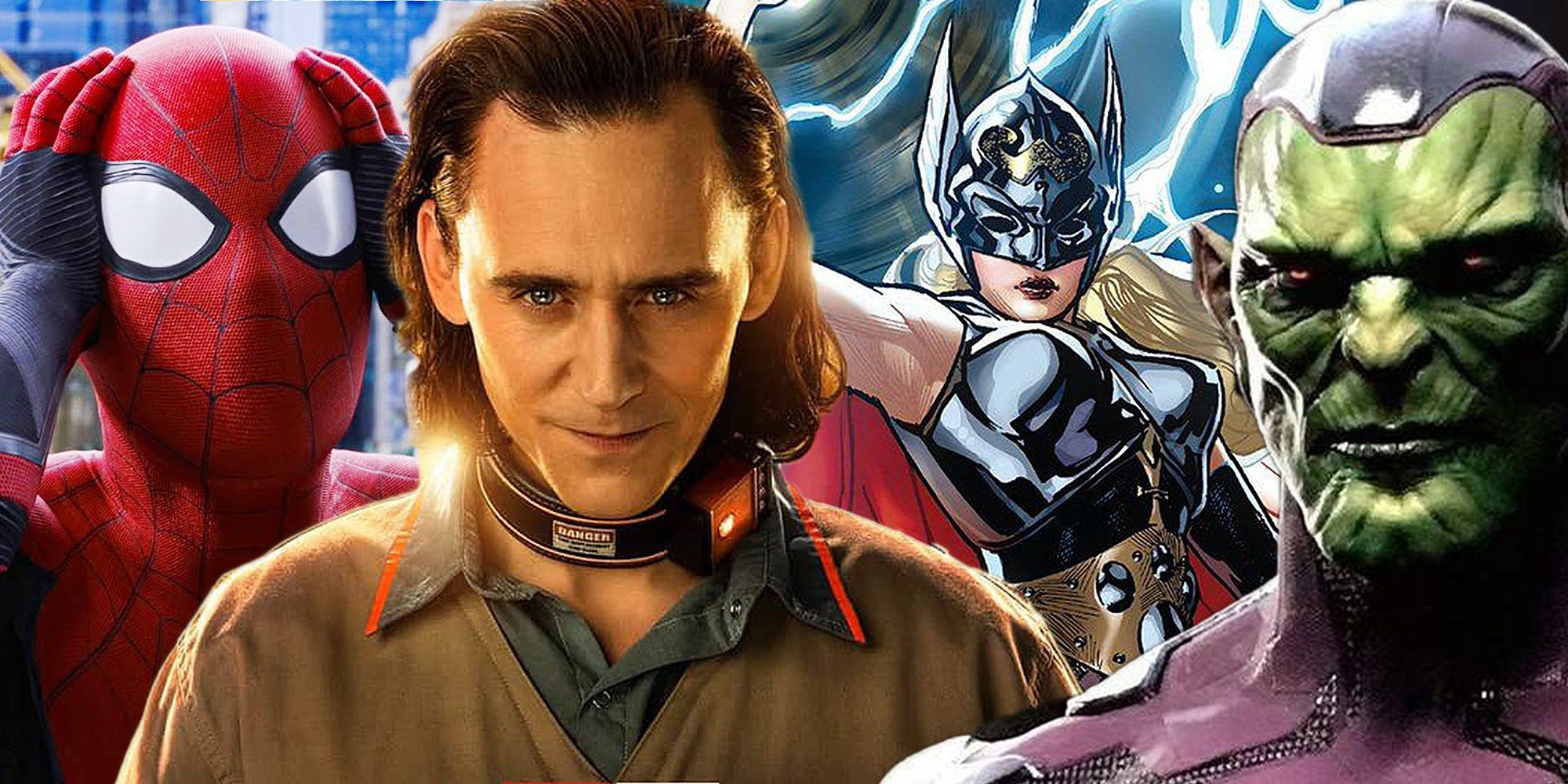Tony Stark's Iron Man identity was both a blessing and a curse throughout the Infinity Saga, and the MCU Phase 4 is doubling down on the same theme with superhero titles such as Captain America, Spider-Man, Scarlet Witch, and more. One of the first major changes the MCU made to its depiction of superheroes was the idea of secret identities. Robert Downey Jr.'s Tony Stark, being the face of the franchise, revealed that he was the man inside the armored suit at the end of Iron Man. Since then, most MCU heroes have been open about the real people under the costumes, to the point that the Avengers have become some sort of worldwide celebrities, which brings them as many disadvantages as advantages.
The MCU underlined the theme of identity with the plot of Captain America: Civil War, where the Sokovia Accords compelled superheroes to disclose their real identities and remain under total surveillance in order to save the world under the law. This event directly led to the Avengers' breakup, and though the triumph of the Avengers over Thanos in Avengers: Endgame gave them a little bit of leeway, the ripples still remain throughout Phase 4.
WandaVision and The Falcon and the Winter Soldier deal with the immediate aftermath of the Infinity Saga, but they also continue the MCU's long-running theme of identity that has been hiding in every movie since Tony Stark revealed he was Iron Man. Now, it appears future installments will explore the MCU's theme of superhero outcasts who struggle with who they are. Here's how this concept ties Phase 4 together.
Tony Stark Couldn't Separate Himself From Being Iron Man
Despite Tony Stark's nonchalant decision to reveal himself to the world, his honesty brought him more trouble than it was probably worth. The plot of Iron Man 2 started with the U.S. government demanding Stark hand over his technology — a failed attempt that is bound to pop up again in Phase 4's Armor Wars, where James "Rhodey" Rhodes may struggle to defend his friend's legacy from multiple copycats. After Tony Stark understood that he was destined to sacrifice himself to protect the world in The Avengers, he lost almost everything he had in Iron Man 3, and all due to his inability to cope with the responsibility of being Iron Man. Tony Stark decided to ditch his arc reactor and discard all of his Iron Man armors in a spectacular fashion, but his superhero identity came back even stronger.
By Avengers: Age of Ultron, Stark was back in the Iron Man suit and ready to create another dangerous invention: Ultron. While his heart was in the right place, building "a suit of armor around the world" caused such a massive amount of chaos that its fatal consequences set up the main conflict of Captain America: Civil War. Stark didn't fare much better in Civil War and Avengers: Infinity War, as he was brutally defeated by Steve Rogers in the former and met with the weight of universal defeat in the latter. Tony Stark could have abandoned his Iron Man identity for good right afterward, but since he knew he was destined to die with it, he sacrificed his ideal life as Tony Stark to die as Iron Man in Avengers: Endgame.
Identity In WandaVision
Phase 4 of the MCU kicked off with a story all about identity. Following the events of Avengers: Endgame, WandaVision jumped right into Wanda Maximoff's identity crisis, which went so far as to make Wanda herself believe that a fake reality based on old sitcoms would be her source of permanent happiness. Wanda struggled to make peace with her past tragedies and thus forced the whole world to revolve around her, however unwittingly. She even forgot how her own illusion came to be and how Vision had apparently returned from the dead. This also transformed into an identity crisis for Vision, who always suspected something was off and had an existential crisis upon discovering his whole life was a lie.
Wanda's predicament had even worse consequences for the residents of Westview, who had their minds forced to take a back seat and their bodies transformed into literal background characters. It was only until Vision or Wanda chose to snap them free of their mental chains that they could beg for freedom. Those neighbors at the edge of Westview had it worse, who might have been conscious enough to suffer every minute of their torment and realize that they weren't even important to Wanda's show. Fortunately for everybody involved, Wanda ended up freeing them, but they were never shown to be compensated for having their free will ripped away from them.
WandaVision concludes with the core characters learning about who they really are. Vision faces off against his former body, who yearns for purpose after being reborn. This is perhaps the most evident manifestation of the MCU's theme of identity so far, especially when Vision uses the "Theseus Ship" thought experiment to defeat White Vision, which marks the first time an idea puts an end to a superhero battle. Wanda finally becomes the legendary Scarlet Witch, but refuses to follow Agatha Harkness's prophecies, stating very clearly: "I don't need you to tell me who I am." Although almost every character in WandaVision went through a good deal of existential horror, the series manages to show how some of the most tragic MCU heroes could forge their own path despite the circumstances.
Identity In Falcon & Winter Soldier
Immediately after WandaVision, The Falcon and the Winter Soldier explores the same theme from a different perspective. Sam Wilson and Bucky Barnes question who Captain America was and how his legacy should be preserved, with the U.S. government taking a strong stance in favor of patriotic propaganda and the appointed wielder of the shield, John Walker, swearing he will become the best Captain America he can be. Most importantly, Sam Wilson struggles with his wish to respect Steve Rogers' ideals, but at the same time begins to understand that he will never be the person Steve Rogers was, nor does he need to be.
On Bucky's side, his brutal Winter Soldier persona continues to haunt him despite his best efforts to live it in the past. Bucky prides himself in his White Wolf persona, given to him by the Wakandans, and even demands respect for his "Bucky" nickname. Unfortunately, Bucky may yet have a bit of the Winter Soldier assassin buried deep inside his psyche, and he also possesses deep insecurities that cause him to believe that if Steve Rogers was wrong in judging Sam's willingness to carry the shield, then he was also wrong in judging Bucky to be worthy.
The inner struggles of characters like Isaiah Bradley, Sharon Carter, and Baron Zemo also revolve around the theme of identity. For instance, Sharon Carter is forced to live a secret life in Madripoor, Zemo becomes Sam and Bucky's ally but refuses to drop his personal vendetta, and Isaiah Bradley suffers the pain of being shamelessly exploited and thrown to oblivion by the very people he fought for. Bradley's story also affects Sam Wilson, whose perspective of heroic figures begins to break when he realizes that the government kept a Black Captain America as a secret from the public for decades. At the same time, Sam questions the necessity of putting the word "Black" before the title of a superhero and confronts the world's habit of seeing him as a sidekick. John Walker is set to abandon his original philosophy altogether, as the pride of being the official Captain America threatens to subvert his relatively good nature with his inner ego and aggression.
How Identity Can Continue To Affect Phase 4
The MCU makes no explicit mention of identity being the main theme of Phase 4, but almost all of Marvel's upcoming live-action projects seem to be strongly related to it. A crucial part of the premise of Spider-Man: No Way Home is Peter Parker's myriad problems after his secret identity is revealed to the world by J. Jonah Jameson at the end of Spider-Man: Far From Home. This is further aggravated by the possible appearance of alternate versions of himself. Similarly, Loki will deal with different timelines where other versions of himself affect the universe in different ways, and also with the fact that this Loki is supposedly a "variant," which means he may not even be the main (i.e. real) Loki. Thor, on the other hand, will witness Jane Foster taking his power and his hammer, which may finally convince him that he will never be the Asgardian king he originally wanted to be for hundreds of years.
Many of the characters who will make their debut in Phase 4 also face identity struggles one way or the other. For instance, Ms. Marvel may do her best to live up to her idol, Captain Marvel; She-Hulk will be cursed with the same alter ego as her cousin Bruce Banner; Kate Bishop and Echo will adopt Hawkeye's two contrasting identities, and Riri Williams will be faced with the difficult task of becoming the next Iron Man. The most evident manifestation of the theme of identity in Phase 4, however, is Secret Invasion, where the Skrulls' ability to shapeshift will put into question who is the real person and who is the intruder - all on a large scale.
With no new Avengers movies planned so far, the MCU's Phase 4 will tie the multiverse together with a solid thematic line that has been present since the very first movie in the franchise. As Tony Stark's MCU journey led him to embrace his Iron Man identity, the MCU will continue to explore this theme through multiple characters and different perspectives, which makes the MCU's riddance of secret identities all the more useful. And in a solemn case of reality following fiction, the MCU will also face the issue of releasing Black Panther 2 with the absence of the irreplaceable Chadwick Boseman, whose performance as King T'Challa can never be replicated.

